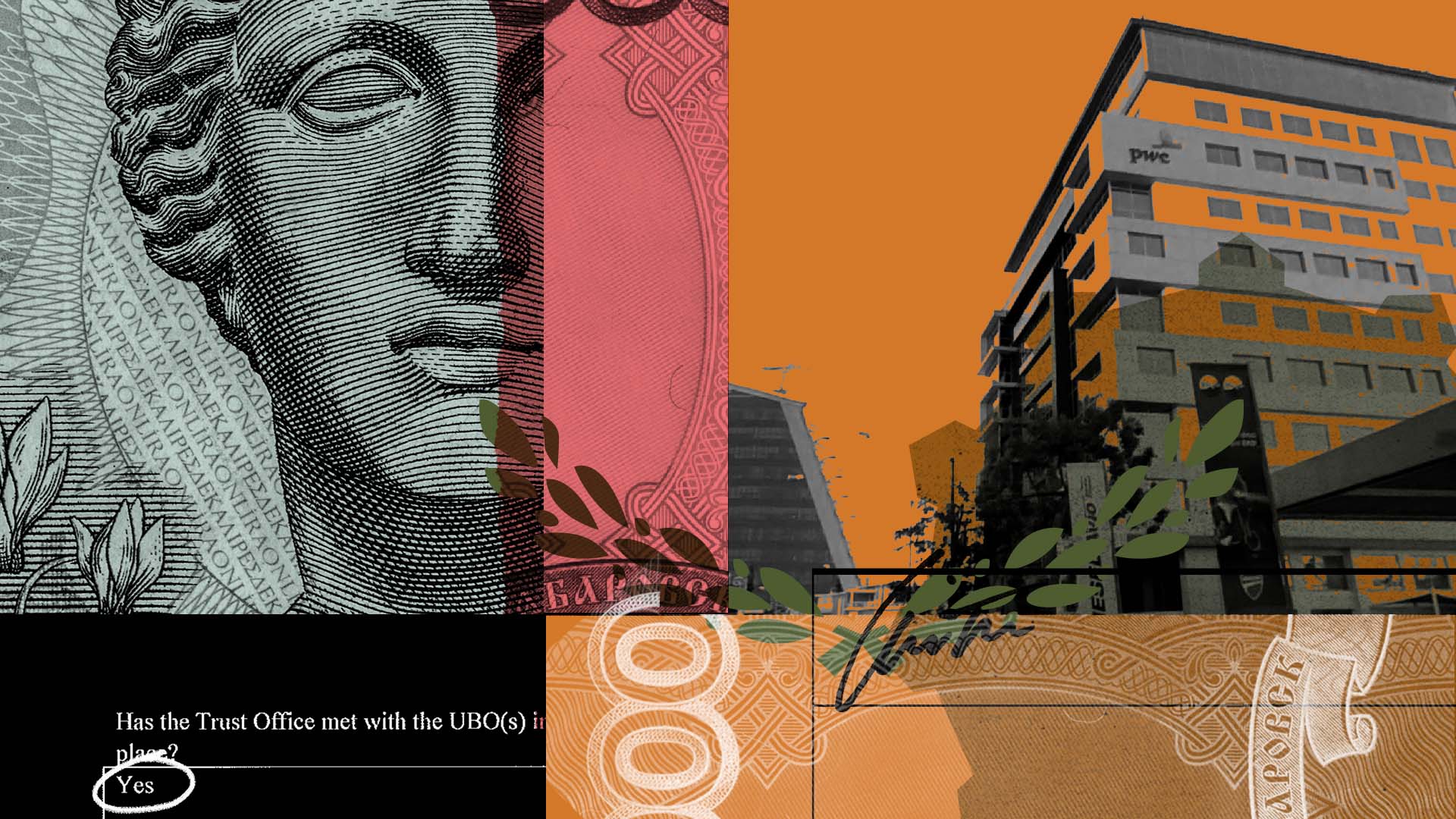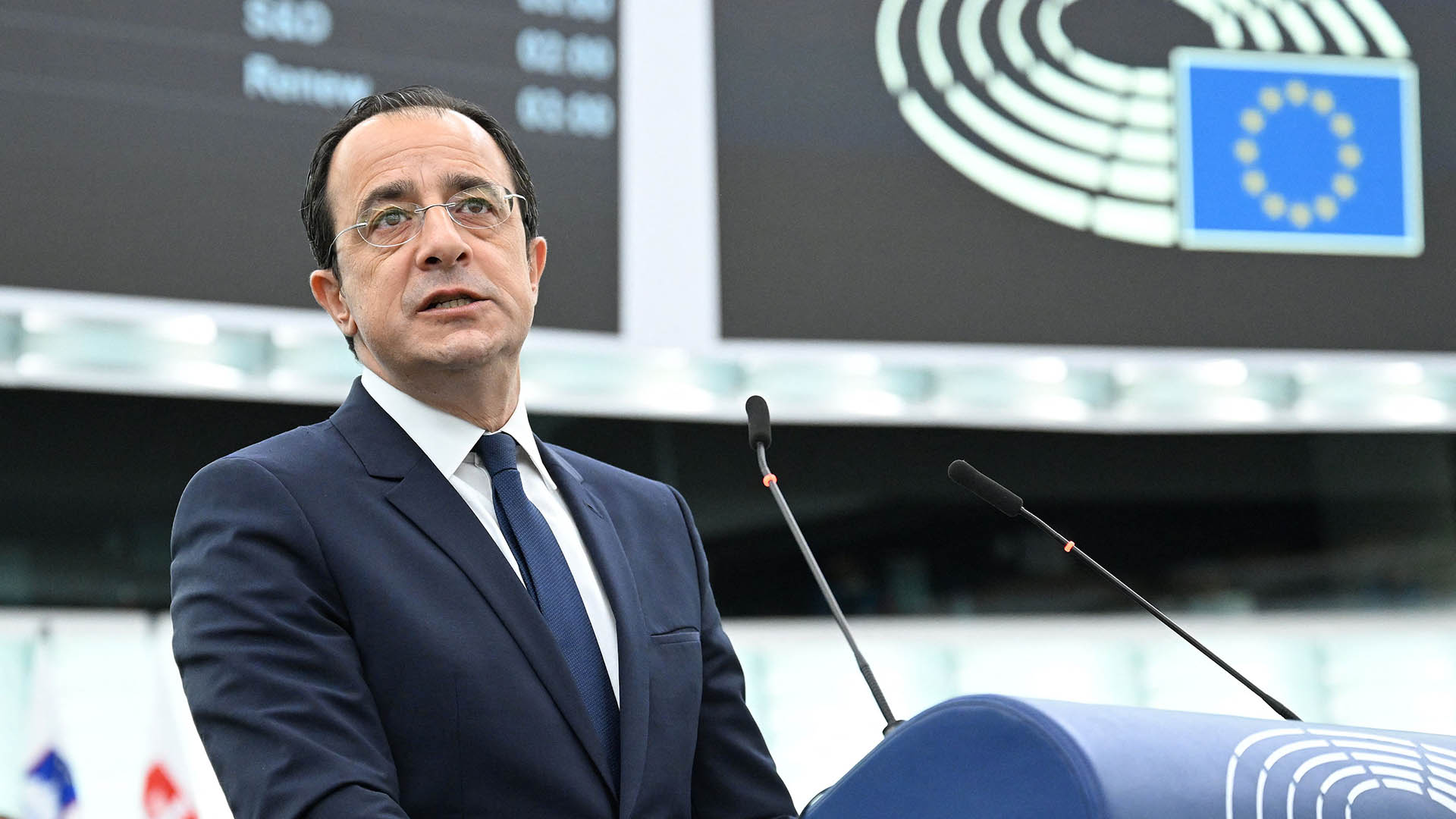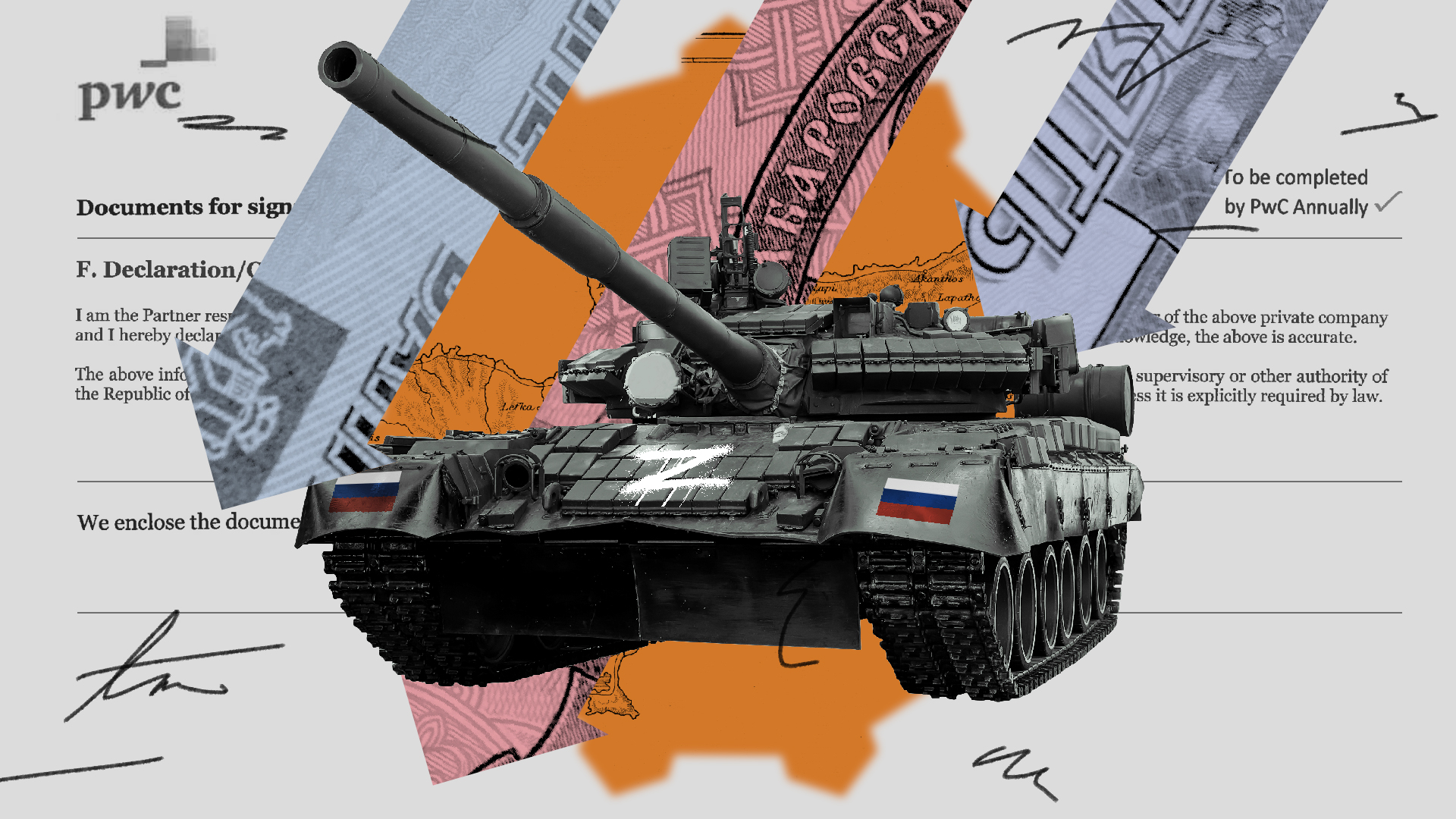World News – 2024 – Video Playlist | Video Playlists | Sites: | newsandtimes.org | links-newsandtimes.com | worldwebtimes.com | southcaucasusnews.com | russianworld.net | jossica.com | octobersurprise2016.org | bklyntimes.com | oceanavenuenews.com | fbireform.com | bloggersunite.net | octobersurprise-2024.org | Trump-News.org | Audio-Posts.com | Bklyn-NY.com | Posts Review – newsandtimes.org
One year ago, Cypriot President Nikos Christodoulides vowed a swift response to revelations that the European Union-member state had helped Russian oligarchs evade Western sanctions and fund President Vladimir Putin’s war machine.
“Everything that has come to light will be investigated,” Christodoulides said. “The reputation of our country, the credibility of our country, you understand, is crucial.”
The president’s pledge came in the wake of Cyprus Confidential, a cross-border journalistic investigation led by the International Consortium of Investigative Journalists and Paper Trail Media in collaboration with 67 media partners from around the world. The probe, based on leaked documents, found that Cyprus legal and financial services firms were key cogs in Russia’s offshore financial machine.
But while some reforms have been made, one outspoken government critic now says that Cyprus’ response over the past 12 months has fallen short of the president’s promises. “No criminal investigations were carried out and no arrests have taken place … because the system of power is just as corrupt,” Makarios Drousiotis, a former presidential advisor turned investigative journalist, told ICIJ.
The investigation “confirmed what citizens perceived: that Cyprus was a haven for international criminals,” said Drousiotis, who this year ran for a seat in the European Parliament on an agenda critical of Cypriot corruption.
Cyprus Confidential revealed more than 650 companies and trusts registered in Cyprus that were owned or controlled by Russians who later came under sanctions, including some who were sanctioned as early as 2014.
The most significant step taken by the Cyprus government, Drousiotis said, was to invite United States investigators from the FBI and the Financial Crimes Enforcement Network, or FinCEN, to Cyprus to provide expert assistance. The government then pledged to create a new unit to investigate and punish sanctions dodgers, and established a new partnership with the U.S. to help counter financial crimes. Cypriot media described these steps as helping spur a broader warming of ties between Nicosia and Washington.
Elsewhere in Europe, Cyprus Confidential prompted a quick response from politicians, law enforcement officials, and major corporations. European legislators described Cyprus as a “weak link” within the EU’s financial system, and the European Parliament called a session in response to the investigation on how to tighten anti-money laundering rules. “The European Union is turning into a gangster’s paradise, because there is complete impunity,” said Sophie In’t Veld, then a prominent European Parliament member from the Netherlands.
In Germany, meanwhile, a publisher pulled two books by journalist Hubert Seipel from the shelves after a Paper Trail Media investigation revealed that Seipel received over $600,000 from a now-sanctioned Russian oligarch to write a book eventually titled “Putin’s Power: Why Europe Needs Russia.” Seipel, an award-winning German journalist, had previously written a biography of Putin and said that he had met Russia’s president nearly 100 times. He was subsequently expelled from Germany’s investigative journalism association.
Cyprus Confidential also reportedly helped impel a criminal probe of Seipel’s benefactor, Alexey Mordashov, who has a net worth estimated at $25.5 billion according to Forbes’ annual list. ICIJ’s investigation uncovered new details about the Russian oligarch’s attempts to transfer a $1.4 billion investment to his wife in a bid to evade sanctions. Local media subsequently reported that Cyprus’ government had been aware of the suspicious transfer for months, but that authorities had dragged their feet in responding. “Now the ICIJ consortium and international journalistic revelations have beaten them all to it,” read an article in the Cypriot newspaper Phileleftheros.
In Lithuania, Cyprus Confidential revelations led the country to introduce new legislation to allow the government to strip people of Lithuanian citizenship. A report published by Siena, a Lithuanian investigative media outlet and ICIJ partner, found that two of Russian oligarch Roman Abramovich’s children held Lithuanian passports when they were given control of some of his fortune, in an apparent bid to evade sanctions in the run-up to Russia’s 2022 invasion of Ukraine.
A British law enforcement agency also forced the real estate manager for another oligarch, Petr Aven, to forfeit $1 million. Aven is the former head of Russia’s largest privately-owned bank. The forfeiture marked the first time that the United Kingdom’s National Crime Agency had recovered money in a sanctions violations case. Cyprus Confidential had previously revealed that Aven transferred millions of dollars from Austria to the U.K. on the day he was sanctioned by the EU. The NCA investigated subsequent transfers made between bank accounts in the U.K. on behalf of Aven after the billionaire had been sanctioned by the British government.
Cyprus Confidential went beyond exposing the underhanded dealings of Russian oligarchs and Putin cronies. It also showed how a former Israeli intelligence officer, Tal Dilian, had used the island to build a notorious cyber-surveillance firm that had sold spyware to some of the world’s most brutal regimes, including a paramilitary group in Sudan and the Egyptian intelligence services. The U.S. subsequently sanctioned Dilian and his firm, Intellexa, for developing spyware that had been used to target Americans. Then in September, Washington slapped sanctions on more individuals and businesses, including two Cyprus citizens, associated with Dilian’s cyber-surveillance network.
Records also showed that a financier of Hamas held a stake in a Cyprus company. The investigation by ICIJ and Israeli news outlet Shomrim showed that Abdelbasit Hamza, who was sanctioned by the U.S. for transferring almost $20 million to the Palestinian organization, owned a stake in a Cyprus company that holds concessions to exploit two gold mines in Egypt. The EU sanctioned him a month after ICIJ and Shomrim’s story was published.
In Cyprus, too, some hold out hope for further reforms. While former President Nicos Anastasiades was bedeviled by corruption allegations, Christodoulides has taken steps to burnish Cyprus’ international reputation, including through an Oval Office meeting with President Joe Biden in October in which he touted the “strategic partnership” between the two countries.
Cyprus Confidential, Drousiotis said, helped provide the impetus for growing cooperation between the two countries and whatever progress has been made in reforming Cyprus’s financial system: “Without international press reports and investigations such as this one, Cyprus might still have been a center of international illegality and money laundering.”
World News – 2024 – Video Playlist | Video Playlists | Sites: | newsandtimes.org | links-newsandtimes.com | worldwebtimes.com | southcaucasusnews.com | russianworld.net | jossica.com | octobersurprise2016.org | bklyntimes.com | oceanavenuenews.com | fbireform.com | bloggersunite.net | octobersurprise-2024.org | Trump-News.org | Audio-Posts.com | Bklyn-NY.com | Posts Review – newsandtimes.org




